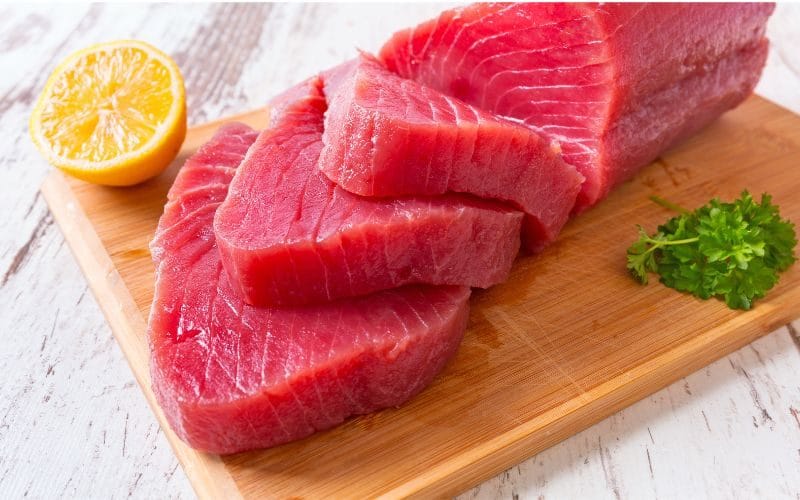what is the best fish for cats? (We have listed 4 of them)

What Are The Benefits Of Best Fish For Cats?
Finding the best fish for cats can be confusing for cat parents. In this article we have listed 4 of the best fish for cats which can be included in their diet. Protein is crucial for cats due to their unique physiological and dietary requirements. Cats being carnivorous animals rely on animal based proteins such as chicken, turkey, lamb and fish. Among the various options available, cats are more attracted towards seafood. The powerful aroma of seafood triggers an immediate instinct, drawing them irresistibly closer.
Fish is a universally consumed seafood, and cats share a special affinity for it because of its taste and strong smell. Incorporating fish into your cat’s diet can provide numerous nutritional advantages as well. Some of the benefits of including fish in a cat’s diet are:-
- Fish contains essential nutrients such as omega-3 fatty acids (DHA and EPA), vitamins (such as vitamin D and B vitamins), and minerals (including iodine, selenium, and zinc). These nutrients support proper growth, immune system function, and healthy skin and coat.
- The protein from fish helps in proper functioning of the immune system which helps to fight diseases and keep them strong.
- The Omega 3 fatty acids have anti-inflammatory properties, which can help minimize arthritis issues, and they also help in improving the condition of lackluster coats.
- Omega 3 fatty acids also help in providing a healthy skin and coat. They can help reduce dryness, itchiness, and dandruff, leading to a shiny and lustrous coat.
- Fish can be easily digestible which helps cats with sensitive stomach or digestive issues. Cats who are allergic to other protein sources can stick to fish as an alternative.
Looking at the benefits of feeding the best fish for cats you can definitely figure out that fish is an option for a well balanced diet for your cat. There are some types of fish which may contain mercury or other contaminants, so it’s essential to choose fish that are safe for cats.
4 best fish for cats to include in their diet
1.Tuna
Tuna is a protein-rich fish with low carbohydrate content. It is also a valuable source of omega-3 essential fatty acids, specifically EPA and DHA. These fatty acids play a role in promoting healthy skin and coat, and they may have potential benefits in managing inflammatory conditions such as allergies, heart disease, certain cancers, and kidney disease.
As already informed, feeding Tuna in excessive amounts may lead to potential health issues such as mercury accumulation over time or cause neurological problems. Also the high sodium content in Tuna can strain a cat’s kidneys and contribute to urinary tract issues.
Therefore it is advisable to feed in small amounts or you can add it as a supplement to your regular cat food. It is better to choose the canned pack of tuna. If you wish to serve homemade cooked tuna to your cat, ensure that it is cooked thoroughly.


2. Salmon
Salmon offers cat’s essential protein, omega-3 fatty acids, and various other nutrients including Vitamin A, Vitamin D, Vitamin B, calcium, and magnesium. These nutrients help in supporting immune function, promoting healthy bones, and aiding in metabolism. Many cats find the taste and smell of salmon appealing. Therefore do not make it a habit to feed salmon as a whole meal every time as excess salmon also has drawbacks.
It is better to make salmon a part of your cat’s balanced diet and not their entire meal. By feeding your cat salmon in this small portion size, you can provide them with all the necessary nutrients they require without exceeding their dietary needs. Being a palatable fish, salmon can be useful if you’re trying to entice a picky eater or need to administer medication to your cat by hiding it in their food.
The best way to feed salmon at home is to cook it completely. It can be grilled, poached, baked or pan fried, the ultimate result should be cooked properly. Make sure you do not add any salt or other seasoning, you just have to serve a completely cooked plain salmon piece.


3. Trout
Trout is known for its low mercury content and low contaminants as compared to other fish. Filled with omega-3 fatty acids, potassium, selenium and high quality protein trout adds a lot of benefits to your cat’s diet.
Just like every other fish, trout should also be fed in moderate quantities. Excess feeding of trouts can lead to bone hazards, nutritional imbalance and neurological issues. Ensure it is properly cooked, bone-free, and sourced from reputable and safe environments if you are feeding at home.


4. Sardine
Sardines are an excellent source of Omega 3 fatty acids, vitamin D, vitamin B12, selenium, and calcium. Therefore, high quality Cat Food manufacturers like Farmina Pet Foods include Sardines in their wet food formulation. Sardines also have relatively low mercury levels as compared to other fish making it a safer choice for you. Sardines typically have small, soft bones that are safe for cats to consume. These bones provide a natural source of calcium and other minerals, contributing to a balanced diet.
It is advisable to feed the canned sardine preserved in water or natural juices. The ones with saltwater or with added salt, can have a high sodium content. Excessive sodium intake can strain a cat’s kidneys and contribute to urinary tract issues. There are few cats who are allergic to sardines, if you notice signs of an allergic reaction, such as itching, vomiting, or diarrhoea, it’s important to discontinue feeding sardines and consult with a veterinarian.


Apart from the above stated options you can also feed herring, shellfish etc. However, just make sure you feed in moderate and monitored quantities. Also note it has to be cooked completely.
Can we feed raw fish to cats?
The answer is a big NO. Raw fish can cause major health hazards to your cat. Raw fish has bacteria which can cause food poisoning. All fish species contain an enzyme called thiaminase, which has the ability to break down the essential B vitamin thiamine. Prolonged thiamine deficiency resulting from the consumption of fish can have severe consequences on a cat’s health, including the development of neurological problems.
